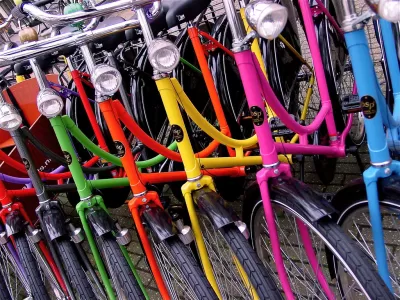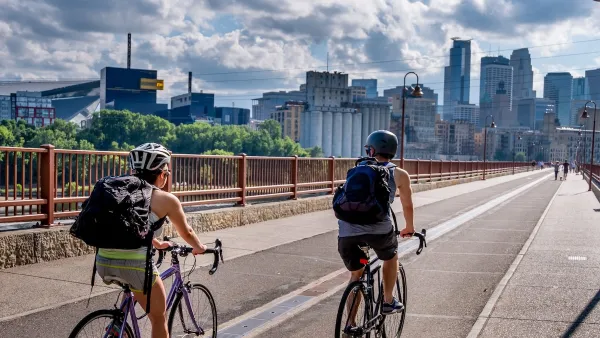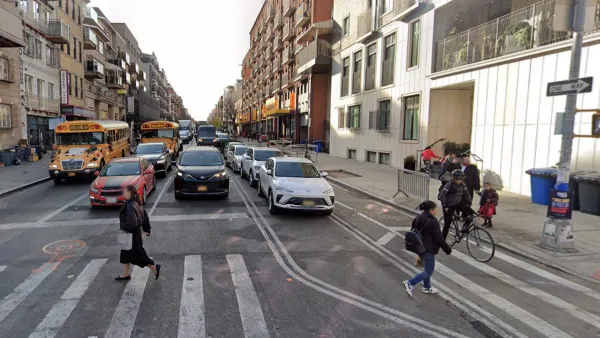As a case study of bike culture, in which riding bikes is a normal and respected decision, Jeremy Holmes studies the example provided by Roanoke, Virginia.

Jeremy Holmes discusses the performance of Roanoke, Virginia relative to the city's creation of a bike culture. First, Holmes defines bike culture: "Having a bike culture means that a community recognizes and respects the use of a bicycle as a transportation option, regardless if one rides regularly or not."
According to Holmes, having a bike culture also means that bikes are "regularly used for utilitarian as well as recreational purposes." Along those lines, Holmes says, Roanoke is well established as a place for recreational riders and making progress for utilitarian riders.
"On the utilitarian side, we are making progress. The region has made many investments in on-road and off-road infrastructure — particularly in the city where riding for transportation makes a lot more sense. The greenway system is a bicycle superhighway for both recreation and transportation, and particular segments of it — such as between Roanoke Memorial Hospital and Wasena Park — can see rush-hour congestion as commuters and enthusiasts share the narrow strip of asphalt."
Holmes goes on to discuss what else the city must do to continue to cultivate and encourage its biking culture.
FULL STORY: Building a Fun Bike Culture in Roanoke, Virginia

Planetizen Federal Action Tracker
A weekly monitor of how Trump’s orders and actions are impacting planners and planning in America.

Restaurant Patios Were a Pandemic Win — Why Were They so Hard to Keep?
Social distancing requirements and changes in travel patterns prompted cities to pilot new uses for street and sidewalk space. Then it got complicated.

Maui's Vacation Rental Debate Turns Ugly
Verbal attacks, misinformation campaigns and fistfights plague a high-stakes debate to convert thousands of vacation rentals into long-term housing.

In California Battle of Housing vs. Environment, Housing Just Won
A new state law significantly limits the power of CEQA, an environmental review law that served as a powerful tool for blocking new development.

Boulder Eliminates Parking Minimums Citywide
Officials estimate the cost of building a single underground parking space at up to $100,000.

Orange County, Florida Adopts Largest US “Sprawl Repair” Code
The ‘Orange Code’ seeks to rectify decades of sprawl-inducing, car-oriented development.
Urban Design for Planners 1: Software Tools
This six-course series explores essential urban design concepts using open source software and equips planners with the tools they need to participate fully in the urban design process.
Planning for Universal Design
Learn the tools for implementing Universal Design in planning regulations.
Heyer Gruel & Associates PA
JM Goldson LLC
Custer County Colorado
City of Camden Redevelopment Agency
City of Astoria
Transportation Research & Education Center (TREC) at Portland State University
Camden Redevelopment Agency
City of Claremont
Municipality of Princeton (NJ)





























